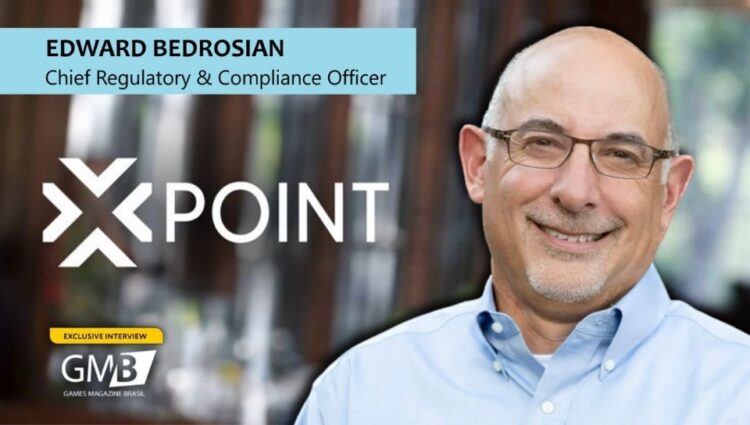Xpoint provides an essential geo compliance solution to the sports betting and iGaming industries globally. Using the latest geofencing technology, and with decades of combined industry experience, they are perfectly positioned to partner with operators in the rapid-growth U.S. and LatAm markets.
The company aims to change the global geolocation market by bringing innovation to an industry that has, to date, viewed geo-compliance as a utility rather than a new business opportunity.
Bedrosian delves into how Xpoint is transforming the geo-compliance sector and explores the essential steps operators must take to ensure compliance and leverage the potential for growth in this promising region.
The executive shares insights on the similarities between geolocation checks in Brazil and the U.S., the pivotal role of experienced vendors in a dynamic market, and the future of regulatory frameworks across Latin America.
GMB – Following the recent publication of Ordinance 1,207, what should operators be doing to prepare for market entry?
Edward Bedrosian – Being one of the later regions to regulate, Brazilian legislators have been able to learn from more mature markets and understand what works well to maximize the economic benefits while ensuring player protection is at the heart. With that, Brazil outlined stringent location requirements which means operators should focus on securing a capable geolocation compliance vendor.
This vendor must not only meet the current regulatory standards but also be nimble enough to adapt to future regulatory changes. For example, if Brazilian authorities decide to restrict sports wagering operations near schools or other sensitive areas, operators will need a flexible geolocation partner to ensure compliance and avoid being caught off guard by evolving requirements.
What similarities can be drawn between geolocation checks in Brazil and the US?
There are several similarities between geolocation checks in Brazil and the US. Regulators in both countries require operators to verify that bettors are physically within their borders before placing bets. This includes preventing the use of VPNs to mask locations, detecting man-in-the-middle attacks, and conducting regular location checks throughout the betting process.
The primary goal is to ensure compliance with gambling regulations. While the underlying technology and principles of geolocation checks are similar in both markets, the specifics of the regulations vary slightly between Brazil and the US. Brazil is a federal mandate that covers the whole country while the U.S. has a decentralized system in which each legalized state makes its own decisions.
What role can experienced geolocation vendors play in offering operators guidance in the regulated Brazilian market?
Experienced geolocation vendors can play a crucial role in guiding operators in Brazil’s regulated market by ensuring adaptability and compliance as regulations evolve. As the market matures, rules may change, making it essential for operators to partner with vendors who can quickly adjust to these new requirements. These vendors bring valuable technical expertise, enabling operators to remain compliant even as unexpected challenges arise.
As with every market at its inception, regulators may not anticipate every issue at the outset, so experienced geolocation vendors offer the flexibility needed to navigate regulatory shifts. Their ability to adapt quickly and provide ongoing support ensures that operators can maintain smooth operations in a dynamic environment.
Why are more LatAm countries, such as Brazil and Argentina, following a state-by-state regulatory style as opposed to a European market style regulation?
In countries like Brazil, Argentina, and the US, states often have more autonomy compared to European nations. In Europe, countries like France or Spain tend to have more centralized regulatory frameworks, while in Latin America and the US, states or provinces have a greater say in setting their own regulations. This autonomy encourages a state-by-state regulatory approach, allowing local authorities to exercise control over their respective jurisdictions.
What does the future hold for the Brazilian market and LatAm in general? Can we expect more countries in the region to follow suit and provide a regulatory framework?
The future of the Brazilian market and Latin America as a whole is promising, with potential for more countries to establish regulatory frameworks for sports betting and online gaming. Other Latin American nations will likely observe Brazil’s regulatory rollout to evaluate its effectiveness before adopting similar measures.
While it’s too early to predict that Brazil’s success will set the standard for the entire region, its approach will undoubtedly serve as a major reference point. If Brazil’s market matures successfully, it could inspire neighbouring countries to create their own regulations, allowing local authorities to control and manage their respective jurisdictions in the ever-evolving gaming industry.
Source: Exclusive GMB
Source link : http://www.bing.com/news/apiclick.aspx?ref=FexRss&aid=&tid=671fa85d93354a698f7e86e0aadcfa45&url=https%3A%2F%2Fwww.gamesbras.com%2Fenglish-version%2F2024%2F10%2F28%2Fbrazils-success-could-inspire-latam-countries-to-create-their-own-betting-and-igaming-regulations-49332.html&c=3721926052095988219&mkt=en-us
Author :
Publish date : 2024-10-28 01:44:00
Copyright for syndicated content belongs to the linked Source.
